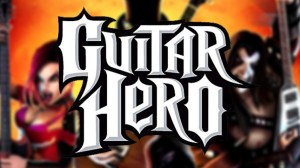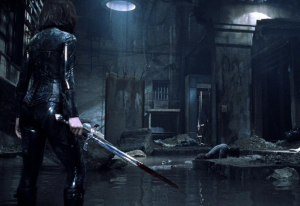Activision gets a lot of hate for various reasons, many of which stem from its incessant thirst for sequels, annualization, and abuse scandals being three (and entirely valid) key reasons. However, it has published a fair share of industry-defining titles over the last few decades. These games range from all sorts of Call of Duty titles, to Tony Hawk’s whole run, to a staggering list of Marvel games that run the gamut from Spider-Man to Deadpool. A lot has shifted over the years as Activision has consolidated more and more into the Call of Duty machine, but there’s still a healthy back catalog to pull from.
Videos by ComicBook.com
This catalog is pretty varied, too, hitting all sorts of genres and consoles. It’s a lot to sort through, but here are the 10 best Activision games.
10) Transformers: War for Cybertron
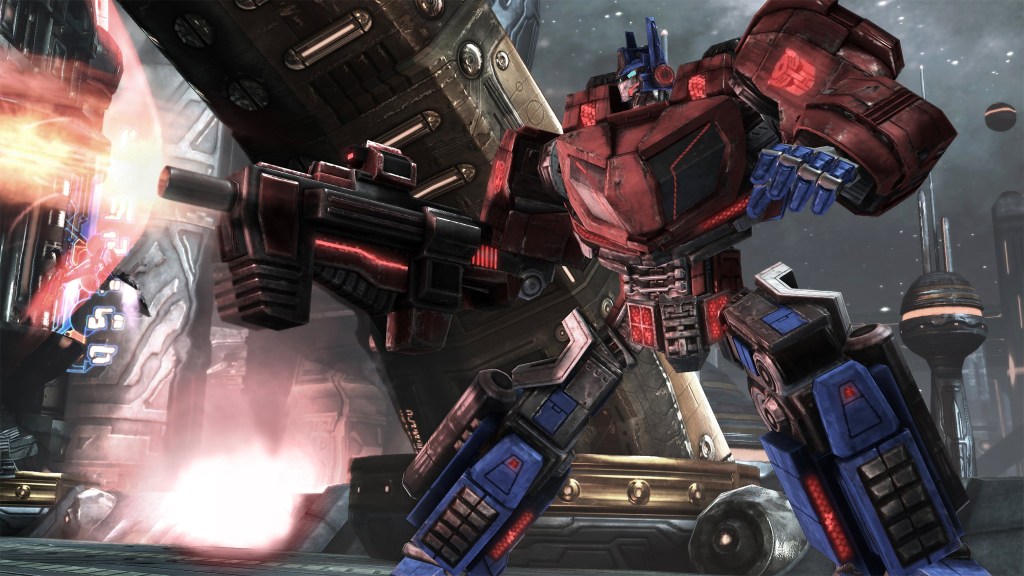
Activision was known for its deluge of licensed games, many of which were exactly why such games have such a poor reputation. However, Transformers: War for Cybertron ascended past all other Transformers games and is one of the handful of thoroughly solid games based on an established property. War for Cybertron is a third-person shooter that lets players control a whole host of iconic Autobots and Decepticons in two campaigns that intertwine.
Regardless of team, gunplay forgoes cover mechanics — a hot style of the time — in order to have a faster pace that meshes well with the transformation mechanic. Going from vehicle to humanoid bot not only animates well, but is also crucial in making firefights more engaging and frenetic, given the versatility each side brings. Bots are better at shooting, while the vehicles are better at getting around. Its sequel, Fall of Cybertron, like many other Activision games, loses a bit of the magic, but War for Cybertron still stands tall as a great shooter and faithful (and canon) Transformers game.
9) Singularity
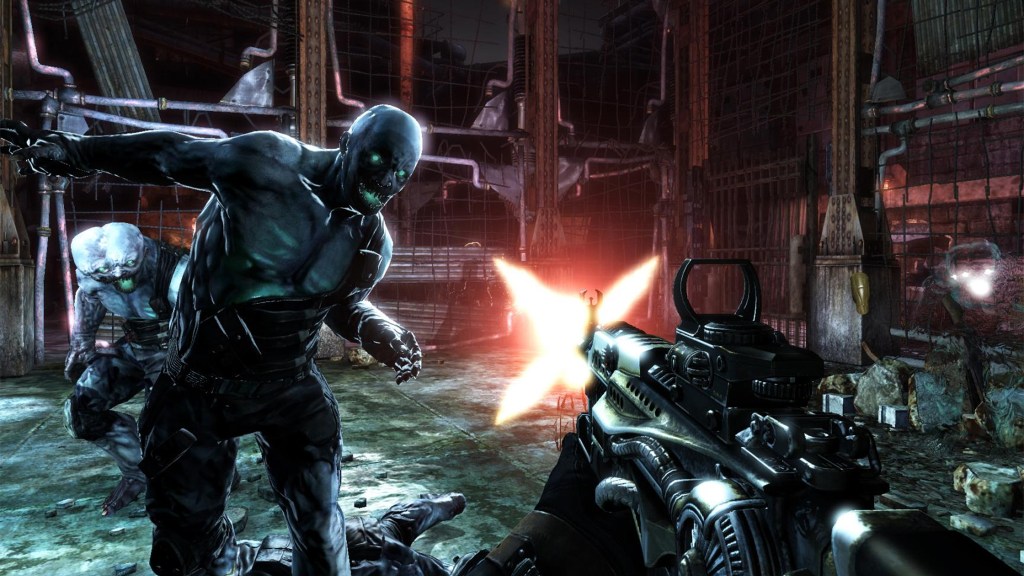
BioShock was one of the premier titles of the PS3 and Xbox 360 generation, so it was naturally going to inspire some other studios. Raven Software’s Singularity is one such game that was heavily influenced by Irrational Games’ undersea shooter, but still managed to carve out its own identity. It’s less philosophical than Bioshock, yet it makes up for that with its focus on more aggressive gunplay. These firefights excel because of the special glove that gives players limited control over time itself, as well as the varied and upgradeable weaponry. The grenade launcher that lets players directly roll around the explosive and the sniper rifle that gives users direct control over the bullet are two highlights.
Singularity was Raven’s last game before it got pulled into the Call of Duty machine, a series it has solely worked on ever since. It’s disappointing for many reasons, mainly because it keeps other creative titles like Singularity from coming out.
8) X-Men Origins: Wolverine
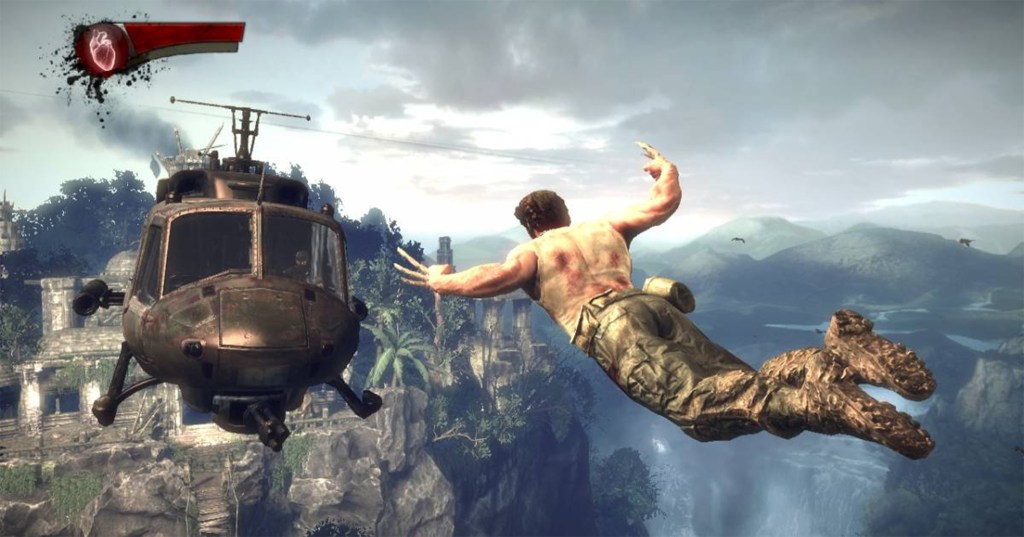
While Batman: Arkham Asylum is widely known as the marquee shifting-point for solid licensed games, X-Men Origins: Wolverine is a strong footnote on that legacy since it came out a few months prior. Origins’ combat is like the many God of War-esque titles of that era and holds its own, even with that lofty comparison. Wolverine can eviscerate his foes and toss them around with ease, fulfilling the power fantasy a hack-and-slash game like this should have in a way that respects the more violent impulses of the character. It also greatly benefited from its Mature rating with its gratuitous gore, as well as its year-long delay of the film, which allowed its juggle-heavy combat to have more depth when compared to other licensed action games of that time.
Origins stands in stark contrast to the panned film it spawned from. The game is a respectable action title, while the movie is a garbled mess and is often seen as one of the lowest points of the X-Men films. The video game is constantly spilling buckets of digital blood around the screen, and the movie adheres to an ill-fitting PG-13 rating. It’s rare to have such a disparity between a movie and its video game adaptation where the video game is at such a higher quality, and it’s why Origins is still so beloved.
7) Spider-Man: Shattered Dimensions
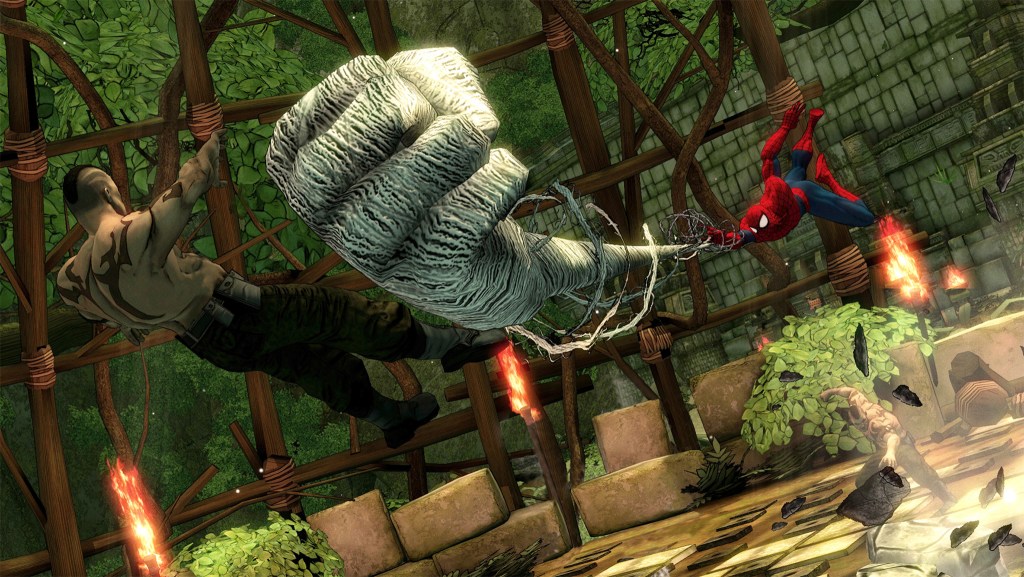
Spider-Man starred in many great video games, but few are as unique as Spider-Man: Shattered Dimensions. Instead of taking the open-world route like Insomniac Games’ titles and 2004’s Spider-Man 2, Shattered Dimensions is a linear affair that uses its linearity to great effect. It more or less yields four smaller Spider-Man games that each star their own version of the character, all of whom have different art styles and fighting tactics.
Amazing Spider-Man is the more basic version with a striking comic book-like aesthetic. Spider-Man Noir is, unsurprisingly, black and white and is a stealthier take on the character. Spider-Man 2099 takes place in the future with a more realistic look. And Ultimate Spider-Man shows players a symbiote-infected Spidey, giving him a more aggressive combat repertoire. All of these unique tones and styles are impressive and, much like the Spider-Verse films, show the flexibility the web-slinger can have. And despite this variability, it never feels unfocused or like its controls are going to buckle under the weight of four characters, even if its God of War-like combat isn’t quite as fluid as Santa Monica Studio’s flagship action game. Edge of Time was a rushed sequel, but, if anything, it further highlighted what was so great about Shattered Dimensions.
6) Spyro Reignited Trilogy
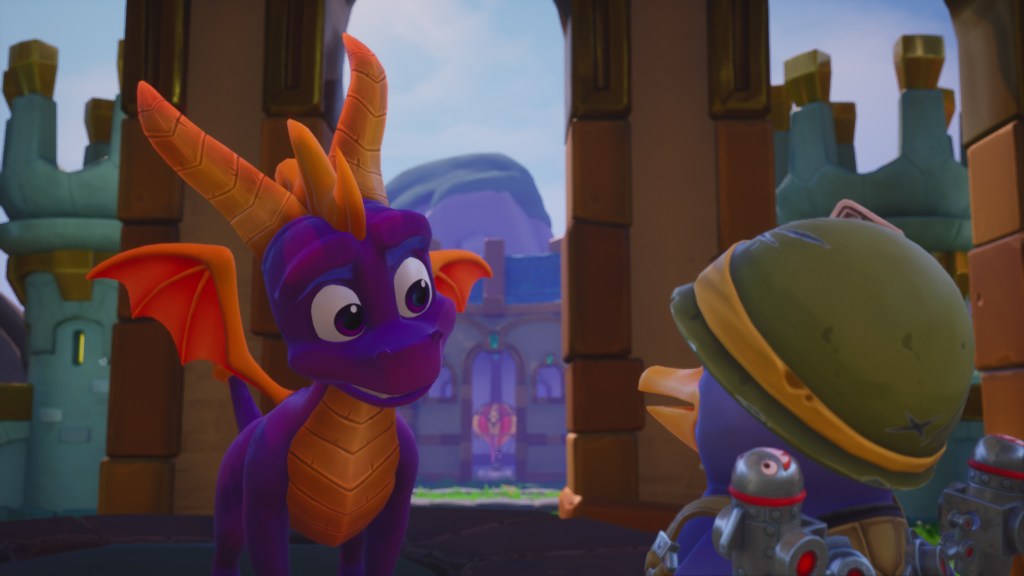
Spyro, much like its PS1 platformer peer Crash Bandicoot, did not live his best years once he escaped the original PlayStation. But instead of trying something completely new for the purple dragon’s new adventure, Toys for Bob remastered that beloved trilogy with a level of respect other remakes should aspire to with Spyro Reignited Trilogy. It retained that level of vibrancy common in platformers of that era, but used modern technology to better realize those stunningly colorful worlds. This utilization of contemporary hardware also brought the game’s characters more to life, as most clearly seen in the first game’s many dragons, all of whom got more of a personality and level of detail not afforded by the PS1.
The visual makeover is the most notable new aspect, but Spyro still controls well and makes for a solid platforming mascot. The unified (and updated) approach to the control scheme also helped even the playing field between the games and ensured gliding around and collecting most gems, dragon statues, talismans, and eggs was enjoyable throughout. The third game is still the weakest entry and is significantly hampered by its abundance of playable heroes, but that doesn’t sink this lovingly constructed package.
5) Call of Duty: Advanced Warfare
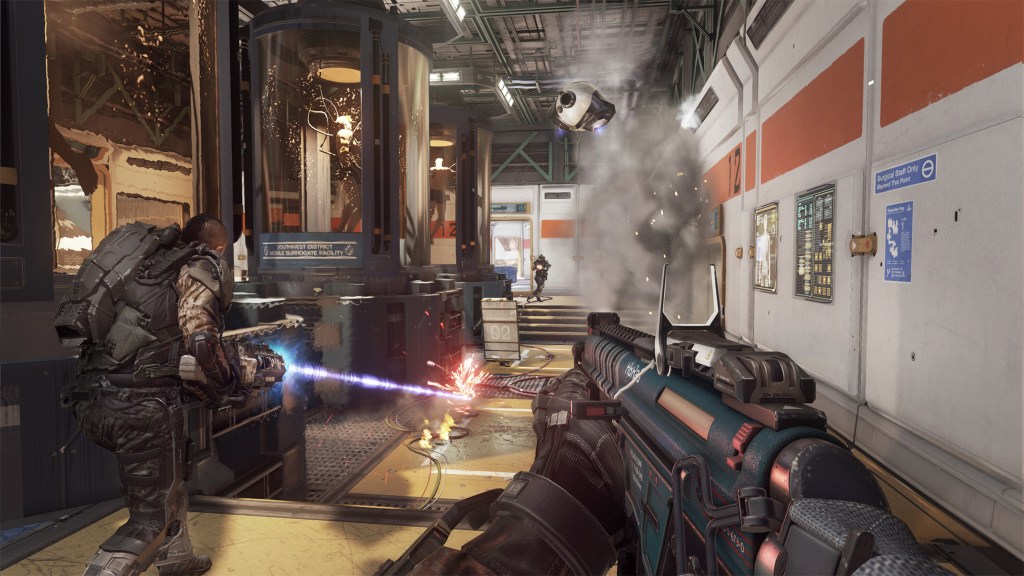
There are many standout (as well as bad) Call of Duty games, but few are as fully fantastic as 2014’s Advanced Warfare. Advanced Warfare’s greatness comes from its setting, which balances more traditional gunplay with near-future technology to create something grounded yet new. It’s neither as dry as some of the World War II entries or as out there and unrelatable as 2016’s Infinite Warfare; its tech is exciting but still tactile in a way that makes it all seem more real. Its exoskeletons are a brilliant example of this, since they give players superhuman abilities but are bulky and not conveniently explained away with nanomachines.
The campaign tells its simple story well and uses its setting well to give players a level of variety that other, more realistic entries can’t quite achieve. Competitive multiplayer has all the similar Call of Duty trademarks and blazing-fast, laser-tag-like action, but gives players a grander level of control over their build with its Pick 13 system that offers more granular customization. Its cooperative pillar is a simple horde mode, but it serves its function well with a well-balanced economy that gives it more depth and replayability. Activision is seemingly almost solely focused on the Black Ops and Modern Warfare sub-series, which is a shame given how well Advanced Warfare turned out and how much it deserved a follow-up.
4) Guitar Hero 2
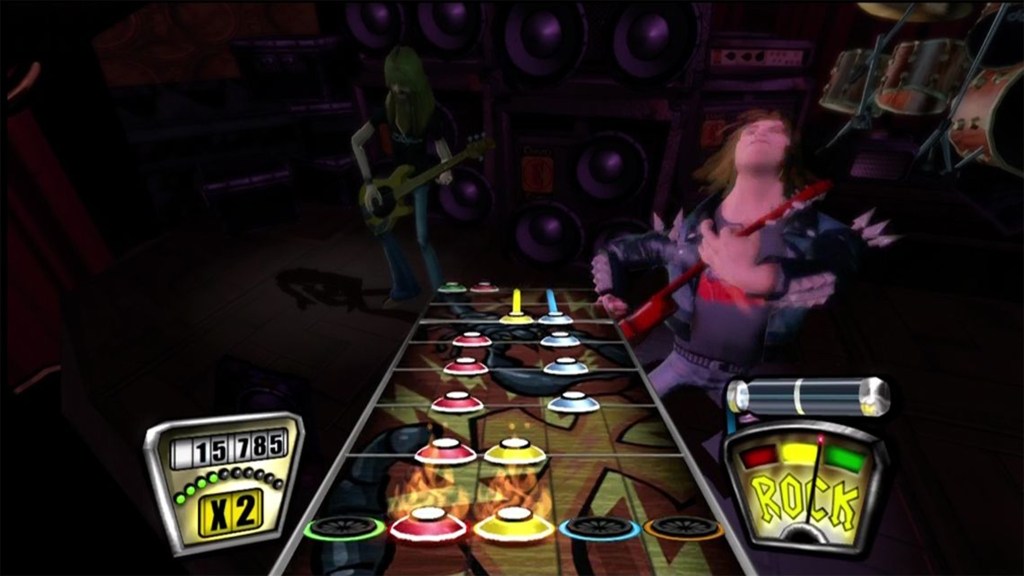
Guitar Hero changed the world, but its sequel was smoother and a better realization of this brilliant idea. It still has the note-dropping, guitar-thrashing gameplay of the original but with a practice mode and cooperative play that make it a more full experience. Jamming out to this soundtrack on a plastic guitar remains a blast because of how it is able to court newer players while also giving more hardcore shredders a challenge.
Its many sequels contained a greater list of features and were more streamlined, but Guitar Hero 2 stands out amongst its successors because of how it was able to iterate on its predecessor while not being overshadowed by Rock Band, which changed the genre once again with its multiple instruments. Guitar Hero began to lose its luster once Activision started milking it, but that magic is still present in this classic sequel.
3) Crash Bandicoot 4: It’s About Time
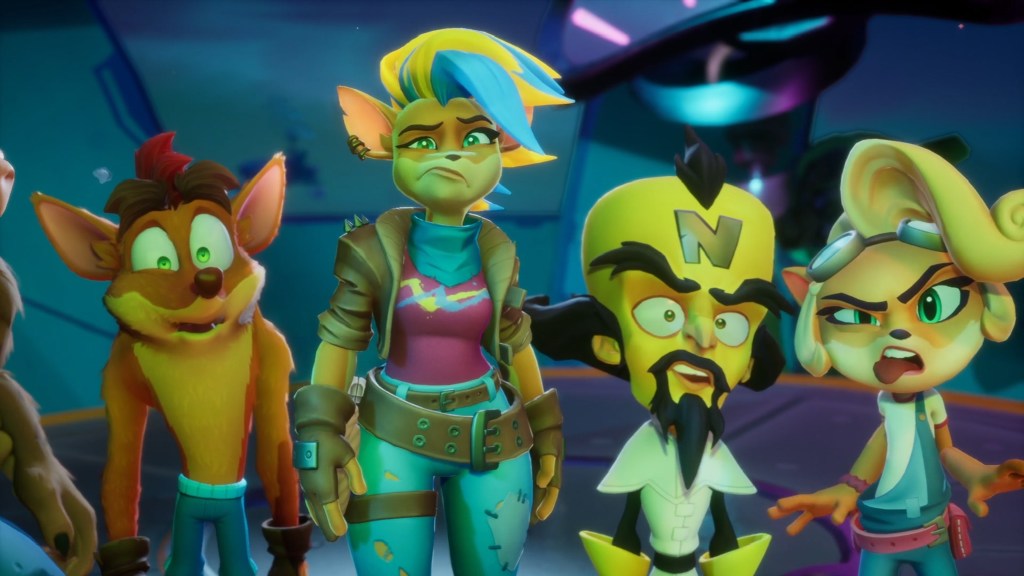
Just about every Crash Bandicoot game after the Naughty Dog era fell somewhere between mediocre and terrible. Crash Bandicoot 4: It’s About Time not only isn’t awful or bland; it’s the best Crash Bandicoot game, period. This fantastic platformer has tight controls (unlike the remastered Crash trilogy) and a healthy helping of varied levels that consistently yield new, well-paced challenges and atmospheres. Some take place in the distant past with carnivorous dinosaurs or on alien planets, while others are set on a 2D plane in nefarious labs or during a Mardi Gras-like festival. An array of surprisingly fleshed-out side characters like the grappling hook-wielding Tawna to blaster-ready Neo Cortex offer even more variability, as do the N. Verted versions of stages that flip each one on its head with new modifiers.
Crash 4’s exaggerated animation and frequent callbacks to the originals demonstrate a love for those old wacky PS1 games, but it doesn’t just stew in nostalgia. Instead, it forges a path forward by feeling like a modern platformer with all of the advancements in design the genre has seen since the orange marsupial’s heyday. It’s disappointing that Crash Team Rumble went in a completely different direction, but it doesn’t diminish how much there is to love about Crash 4.
2) Tony Hawk’s Pro Skater 1 + 2
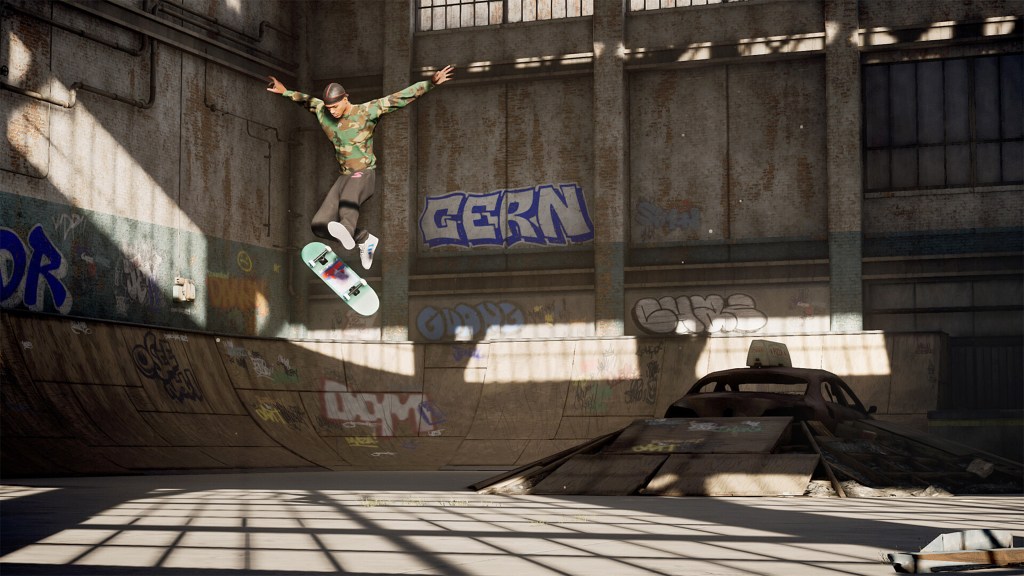
The first two Tony Hawk’s Pro Skater titles are both excellent, so it’s fitting that they both make Tony Hawk’s Pro Skater 1 + 2 the best entry. This remade version of the two PS1 classics capture what those games did well — planning combo routes and hitting high scores — but expands on them with well-reasoned additions. Mechanics from later entries have been spliced in seamlessly here, making it a deeper and more holistic remake. The visual overhaul also clears out the fog and fills out stages with more fitting details that weren’t possible on old hardware. Its iconic soundtrack has also been preserved (and added to) and still serves as a fitting aural backdrop to all the grinds and reverts.
It looks, feels, and sounds like Tony Hawk’s Pro Skater should. This style got more and more obscured in the endless sequel churn, but at least this remake got the series back on track.
1) Sekiro: Shadows Die Twice
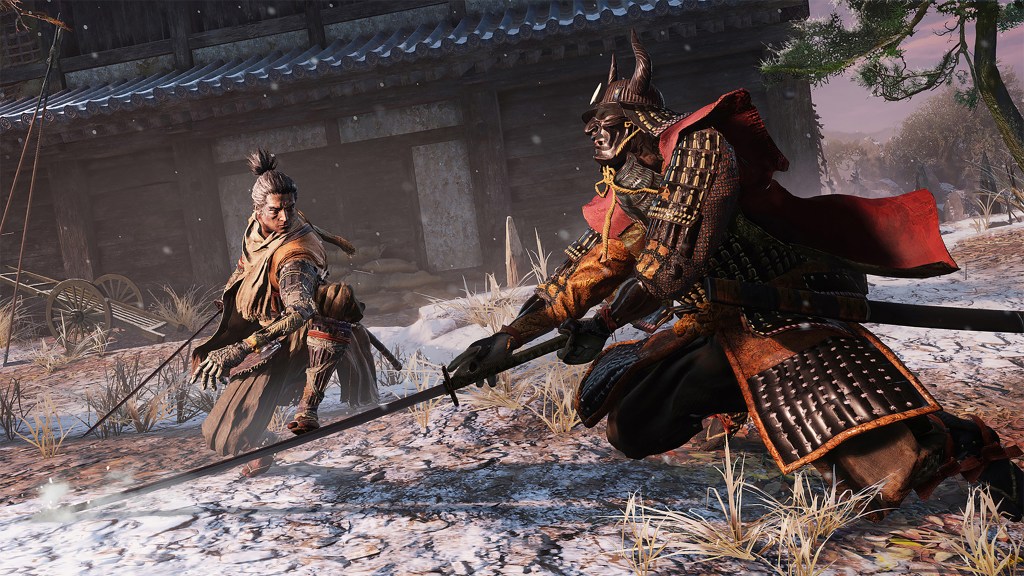
It’s a strange footnote on Sekiro: Shadows Die Twice’s legacy, but it was published by Activision and not from either of FromSoftware’s frequent collaborators, Sony Interactive Entertainment and Bandai Namco. Regardless, it paid off for Activision to go outside of its wheelhouse for this one, as it is the publisher’s best game (From, however, still owns the rights).
This seminal Soulslike is built on one of the best — if not the best — parries in all of gaming. Its responsiveness and the rewards it yields to skilled players allow its boss fights to be thrilling bouts of strength and reflexes. They’re often incredibly difficult but provide a lovely sense of accomplishment once each titanic monstrosity hits the dirt. The faster pace and unique take on upgrades make Sekiro different from FromSoftware’s other titles, methodical games that usually have slower windup speeds for almost everything. But it still retains the high quality that From is known for and is a true accomplishment for a studio known for raising the bar.
What are your favorite Activision games? Let us know in the comments below!

